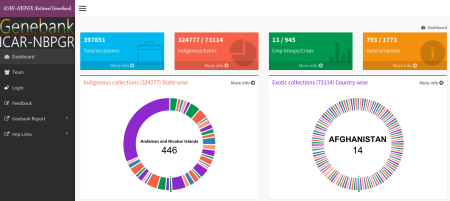Well, I thought we had our finger on the agricultural biodiversity pulse, but this is a new one on us:
Agrobiodiversity@knowledged is a joint Hivos and Oxfam Novib Knowledge Programme initiated in 2011. This three-year Knowledge Programme aims to break through the barriers that limit the scaling up, institutional embedding and horizontal extension of practices that build on agricultural biodiversity for improved livelihoods and resilient food systems. At the heart of the programme is a global knowledge and experience community of organizations working on agricultural biodiversity with millions of farmers worldwide, where evidence and insights are generated, shared and tested. The knowledge programme aims to synthesize knowledge from a local to a global scale, conduct research on approaches and analytical frameworks that provide new perspectives on agricultural biodiversity and its role in resilient socio-ecological food systems, and improve horizontal and vertical knowledge flows towards positive change and transformation.
There’s a useful-looking newsletter too, though I’m blowed if I can work out how to subscribe to it.
